
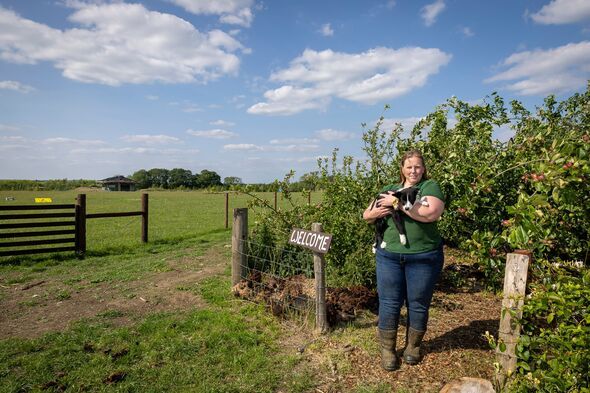
Britain is facing a water emergency. The UK is currently losing around three billion litres of water per day due to leaks, which is the equivalent of around 1,200 Olympic-sized swimming pools.
As well as issues with aging and deteriorating pipes - some as old as the Victorian era - there is an increased need for water due to a growing population. According to the Office for National Statistics, the British population will hit 72.5 million by 2032 - up from 67.6 million in 2022. A warming climate is also having an impact, with hotter and drier summers reducing the amount of water in reservoirs and rivers.
The last time a reservoir was built in England was 1992. The government has warned that, without appropriate action, the UK could run out of drinking water by the mid-2030s.
"We need to take water security serious and we desperately need investment in these projects," says Amy Fairman, the Head of Campaigns at River Action. "When London runs out of water, and not if, it's going to cost the economy £50 billion a day."
This eye-watering figure is given due to the huge impact such a drastic water shortage would have on the overall economic activity in London with so many businesses reliant on a consistent supply. Businesses could lose revenue or even be forced to close without access to water. Meanwhile, the tourism industry including hotels, restaurants and attractions would be hit hard. The industry currently accounts for around 12% of London's GDP.
Water in England and Wales was privatised in 1989, creating 10 regional water authorities. Fast forward 26 years, and these water companies have accumulated over £60 billion in debt.
Research from the University of Greenwich reveals that households in England are paying over £2 billion more every year for their water bills than if the companies had remained under government ownership. A poll carried out in 2017 showed that 83% of the public were in favour of renationalising water services.
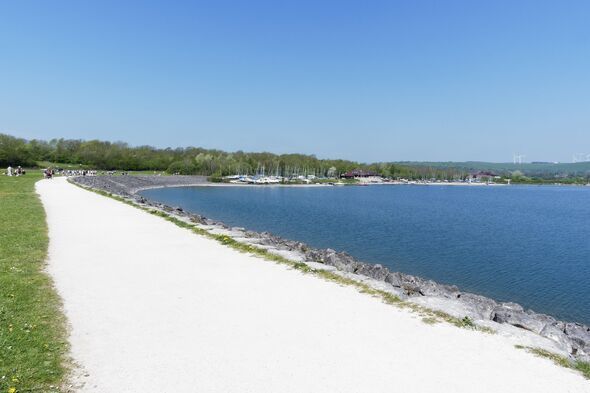
According to Ms Fairman, the water companies are prioritising shareholder capital over investment in infrastructure and public welfare. She says there has been a "chronic underinvestment in infrastructure" since Carsington Reservoir was finished in Derbyshire in 1992.
"Assets and infrastructure have been driven to the point of breaking. It's like having a house that's crumbling down," she explains. "The system is breaking around us. There's been a lack of investment in the infrastructure that provides our drinking water."
Nine new reservoirs plannedThe government hopes to build nine new reservoirs by 2050, including the Lincolnshire Reservoir. The development is proposed by Anglian Water who hope the reservoir will be fully operational by 2040.
The reservoir, located south of Sleaford, will have the capacity to hold 55 million cubic metres of water. It will provide up to 166 million litres of water per day for up to 500,000 homes - the equivalent of more than 664 million cups of tea.
However, the project involves flooding a large area, impacting at least 15 homes and farms. Hannah Thorogood, the owner of Inkpot Organic Farm, would lose all of her land if the plans go ahead.
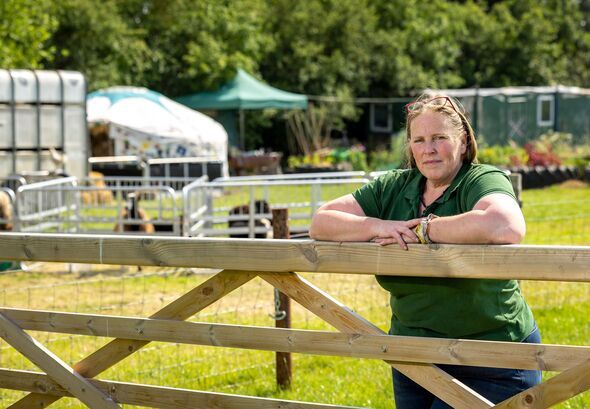
Mrs Thorogood has operated the 350-acre site with her family for 15 years. She farms beef, sheep and hens, and runs a local farm shop that sells a range of award-winning local produce.
"We're not trying to stop it, we haven't got an anti campaign against it. All we're trying to do is hold up the honesty about it," she explains.
"Anglian Water don't put two and two together. They've got a lot of project managers doing a lot of work, getting paid an awful lot of money, but they can't answer basic questions."
According to Mrs Thorogood, Anglian Water is unable to answer whether the new reservoir will include concrete lining which helps prevent water leakage. When asked by the Express, the water company says it is "continuing to develop" the design which will be "in line with the latest national and international industry guidance and standards". What are the alternatives to reservoirs?Ms Fairman believes new reservoirs are important to ease the strain on Britain. However, she acknowledges there are alternative methods to improve the UK's water crisis, such as fixing leaks and recycling water. "There's two sides to this argument. There's the lack of investment in infrastructure that's already existing that's chronically leaking," she says. "We need to fix that wastage alongside developing new reservoir infrastructure that's going to support an increasingly challenging situation in terms of water security."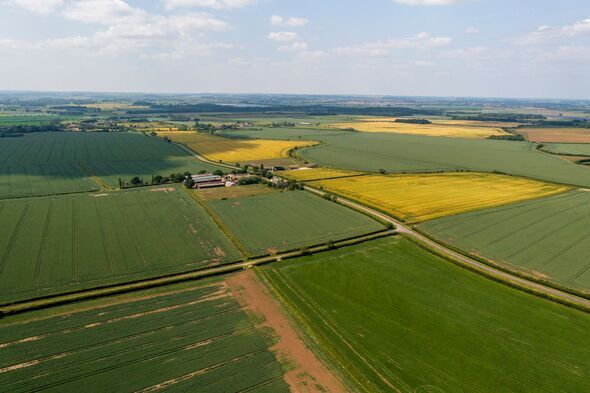
She adds: "The new reservoirs have to be coupled with stopping the leaks in the current system. You can't just build big infrastructure projects for that water to just leak out of the system as it comes out of our taps. We also need to cut our consumption of water down which includes wastage within homes."
Hannah Cloke, a Professor of Hydrology at the Reading University School of Archaeology, Geography and Environmental Science, says the UK faces further water security issues in the future if changes are not made. She says reservoir projects are a "political win" but a further emphasis should be put on how we use our water.
"It's a matter of balance. The reason why we have to build these reservoirs is because we need this water to support the infrastructure," Prof Cloke says. "There is no alternative option that we can implement in the next decade.
"But it's really important that we focus on the other things too. In 20 or 30 years time we want to be in a better place and don't want to be taking away people's businesses and farms to make more reservoirs."
She adds: "Instead, we need to be using our water more carefully. We need to use it lots of times and catch the rain where it falls.
"But these methods do take foresight. Building new reservoirs are an easy political win as they look really shiny. It's more about the more difficult things that we can do.
"They're not as shiny but they're really important. Things like [not] washing our cars with drinking water and trying to re-use drainwater [instead]."
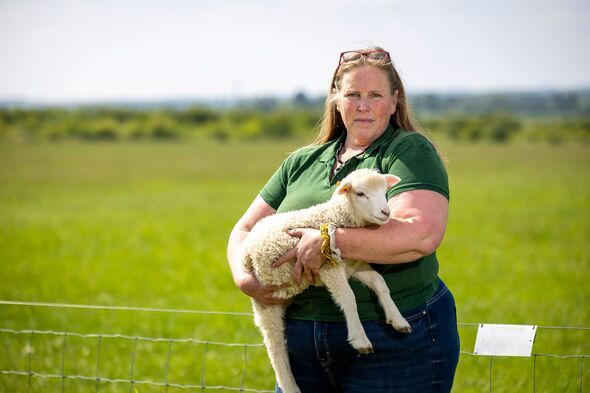 Private company 'chucking British farmers off their land'
Private company 'chucking British farmers off their land'
Mrs Thorogood has also questioned why Anglian Water, which is owned by a private consortium consisting of Canada Pension Plan Investment Board, First Sentier Investors and Industry Funds Management, both from Australia, is able to build the reservoir at the expense of British farmers.
"We produce local food for local people. We've only been here for 15 years which isn't a long time," she says. "But we were planning on being here for multiple generations. You pump everything into running a farm - all your money and dreams - everything.
"But there are farmers in the area that have been here for six generations. At what point do they get indigenous rights?"
She adds: "So why should a privately-funded company, who are doing this for profit, be allowed to chuck British farmers and British people off their land?"
The farmer first heard about the plans in September 2022. Anglian Water sent her a letter in the post but, according to Mrs Thorogood, others in the area are yet to be sent a formal notice.
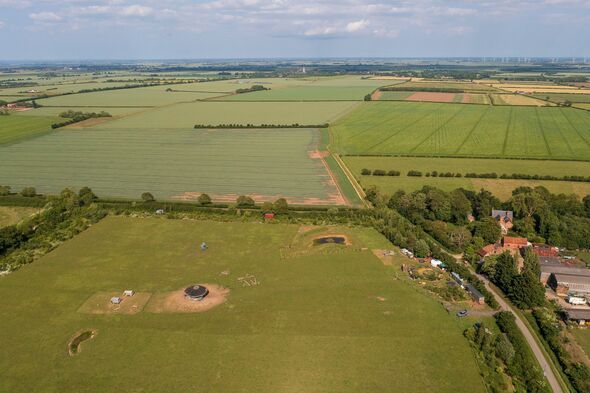
She explains: "We first found out about the plans in September 2022 and we just got a letter. It was like any other letter through the post. But we didn't all get letters. Our neighbours have still never had an official letter about the plans because Anglian Water are working off old registry lines.
"They don't even know who lives here. It's just disgusting. They came to us with a map with blank bits for fields, asking 'who owns these?' They can't even organise that."
Anglian Water says it is planning two further consultations before it applies for development consent. The water company says the reservoir would deliver "social, economic and environmental benefits" for the community.
Reservoirs are 'vital' for the UKAn Anglian Water spokesperson says: "Securing resilient water infrastructure is vital to unlocking growth and in our region, which is the fastest growing in the UK, as well as one of the driest that is also prone to flooding, we need to build infrastructure on a scale never seen before.
"Our proposed Lincolnshire reservoir, located south-east of Sleaford, about halfway between Grantham and Boston, will supply up to 500,000 homes, while also delivering social, economic and environmental benefits for the communities around them."

They add: "We are designing the reservoir in line with the latest national and international industry guidance and standards, and the legislation set out in the Reservoirs Act 1975. We're continuing work to develop our emerging design, making sure that it's sensitive to the surrounding landscape character and informed by what people told us during our last consultation.
"We are planning two further rounds of consultation before we submit our application for development consent in late 2028/early 2029, meaning more opportunities for people to have their say. We expect to be supplying water from the reservoir from 2039 at the earliest."
Despite the understandable frustration of locals impacted by them, Ms Fairman says that without such reservoir projects, the UK is going to run out of water. "We need to recognise as a nation that we need these reservoir projects," she explains.
"But we need to carefully plan where they're developed to make sure they have the least social, economic and environmental impacts as possible.
"We are going to run out of water. We need to take this seriously. We're facing a water emergency."